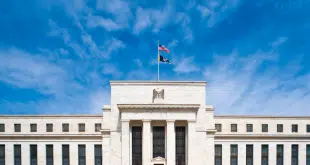American Express Co. on Monday became the third of the four major U.S. card brands to announce it will cease requiring signatures for transactions made with its cards at the point of sale beginning in April 2018.
AmEx says its rule change applies to all point-of-sale purchase transactions globally, a first among the card brands. In October, Mastercard Inc. was the first to say signature as a cardholder verification method would be optional beginning next April for U.S. and Canadian POS transactions. And last week, Discover Financial Services said its signature requirement would end in April for transactions made in the United States, Canada, Mexico, and the Caribbean. AmEx says consumers may still sign at the point of sale if a merchant asks them to and if an applicable law requires that action.

AmEx’s decision to make this a global rule change was driven by a desire to make shopping with its cards similar across the globe, the company says. “American Express decided to make this change globally because it will enable a more consistent checkout experience across all regions,” an AmEx spokesman says in an email. “A key example of this would be situations when a U.S. card member travels outside of the U.S. to a country that is primarily chip-and-PIN and makes a purchase at a merchant with their U.S.-issued card. Currently, that merchant may require the card member to sign their receipt because our U.S. consumer cards are not enabled with PIN. As a result of our policy change, in April 2018, that merchant could choose not to collect the card member’s signature, which may speed up the checkout process and make the experience more consistent with how other local card members check out.”
The issue of requiring signatures intensified with the advent of EMV chip cards in the United States. Merchants contend that a PIN represents a better authentication method, but issuers and the card brands have been reluctant to add them to credit card transactions because of the possible disruptive aspect of educating consumers. Now three of the four cards have leapfrogged over that.
Visa Inc. is the sole U.S. card brand not to make a similar announcement. Visa said it supports multiple technologies “to bring speed, security, and consumer convenience to the authentication and authorization process,” the same statement it issued in October.
Some sources speculate Visa will follow the other brands. “With Mastercard and AmEx giving up on signatures, it seems inevitable that Visa will follow,” says Thad Peterson, senior analyst with Boston-based Aite Group LLC.
Merchant groups also expect Visa will follow the other networks. “I can’t imagine how Visa could respond to investor, customer, and other public inquiries as to why they believe signature is a valid and worthwhile CVM when every one of their competitors’ actions indicate otherwise,” says Laura Townsend, senior vice president of operations at the Minneapolis-based Merchant Advisory Group. “This global migration marked by the move by AmEx to offer signature as optional in every country across the globe shows the mutual interests of payment networks and the merchant community to improve the payment experience at the point of sale for our customers and focus its energy on better authentication methods leveraging modern and emerging technologies.”
Visa’s stance could confuse consumers, Townsend says. Visa’s decision to continue to require signature authentication while other card brands don’t might “introduce a level of unnecessary friction to the overall consumer experience,” she says.







